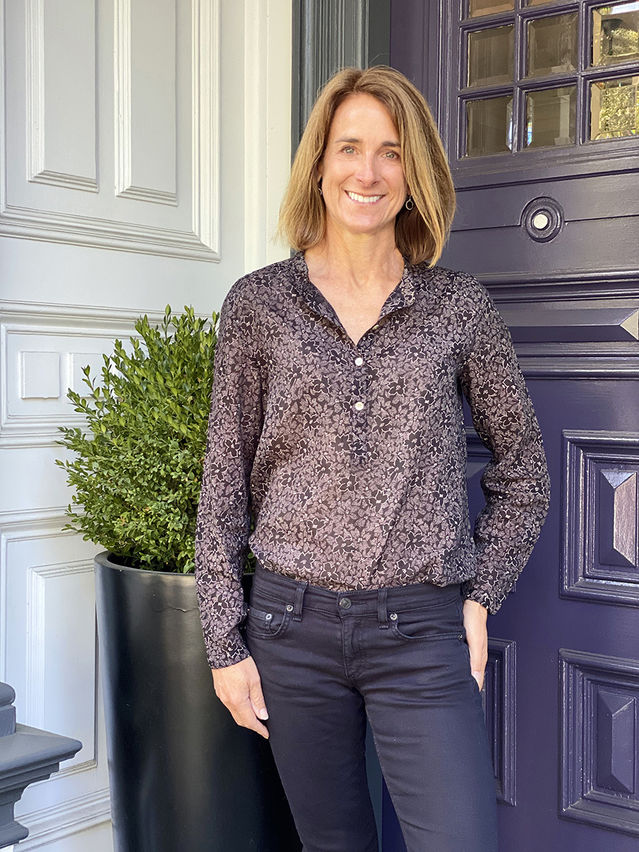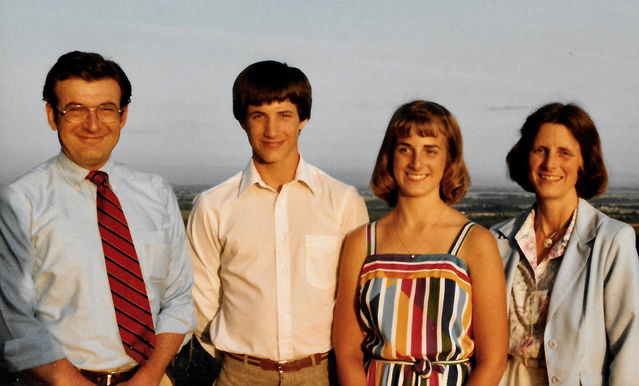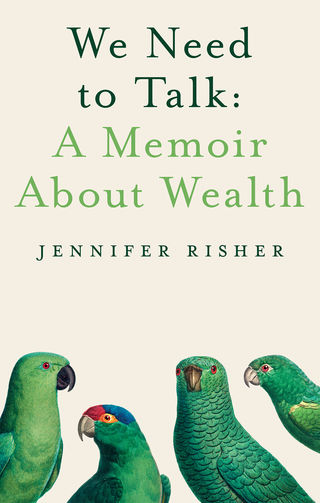Wrestling With Wealth
An unexpected fortune forced Jennifer Risher to recalibrate her beliefs about money and morality.
By Jennifer Risher published April 29, 2020 - last reviewed on May 5, 2020

When I got a job offer to be a campus recruiter at Microsoft in 1991, I had no idea how much good fortune was heading my way. I was 25 years old. The company was booming, and its employees were young, ambitious, and out to change the world. My starting salary was $26,000, which was a big jump from the $19,500 I’d been making as an account coordinator in advertising. In fact, the offer was so good that I barely listened as my new manager explained the biannual reviews, bonuses, salary increases, and stock options.
At the time, stock options were somewhat of a mystery. Even within Microsoft, options just seemed like a bunch of numbers on paper, floating around in the future, completely unrelated to everyday life.
Midway through my second year as a recruiter, I took a closer look and was astonished. The Microsoft stock price had been moving steadily upward since my first day and my options were worth tens of thousands of dollars. It was hard to believe. If the stock price remained strong, I would have over $300,000 in three years. My boyfriend, David, who would later become my husband, had accepted a job offer at the company six months before I had and joined at a higher level with an MBA. His options were already worth $2 million. Two million dollars! The amount was hard to comprehend.
But that wasn’t the end. Six years later, David left Microsoft to join a small, unknown start-up called Amazon. When that company went public, our fortune became even more unfathomable. Suddenly, we had tens of millions of dollars—all before age 35.
The Drive to Save
As a child, a rainy day had always lurked in our living room. My father was an insurance broker and my mother a librarian who stopped working when I was born. We never lacked for food, clothing, or shelter, but I felt a pervasive need to be careful, to watch every penny and never be excessive.
When my father sat at his desk, paying bills in a cloud of cigarette smoke, I tiptoed past. Finances made him grumpy. His family hadn’t had a lot of money, and he was always worried about having enough, which instilled the need to be frugal. My mother stuck closely to her grocery list, used the same teabag for a second and third cup of tea, and drove only when necessary because gas was expensive. I was vigilant about turning off lights when leaving a room and putting on a sweater when the house felt cold. I had the sense that good people were frugal and bad people were excessive. I felt this in my bones and never wanted to spend money. Saving gave me a sense of self-worth and value as a responsible daughter, worthy of my parents’ love.
While my head recognized that David and I had an incredible fortune, it took years to feel the abundance. My childhood habits and beliefs had a strong hold on my thinking and behavior. When David and I were dating and wanted to spend a weekend together in San Francisco, I didn’t think we could go. The airfare from Seattle to San Francisco was over $200, which was simply too much for only two nights away. But hoping to make the trip work, I called around to different airlines in search of deals. When I discovered we could fly to Oakland for $50 less than it cost to get to San Francisco, I purchased tickets, pleased about the savings.
For weeks, David and I looked forward to our weekend getaway, but the morning of our departure was stressful. The flight to Oakland left much earlier in the day than either of us would have chosen, and we had a lot of work to get done first. I went into the office at 6 a.m. and spent a couple of hours at my desk before rushing to David’s building where he was waiting in the car, looking tense. Neither of us spoke as we sped to the airport and sprinted for the plane.
When we landed, we still had a distance to go. First, we had to take the shuttle bus to the train station. After finding the shuttle stop, we waited 15 minutes for the bus to lumber around the corner. Once underway, we slowly wended our way through the city. When we disembarked at the train station, we wrestled with the ticket machine. And we still hadn’t reached our final destination. I looked over at David, feeling foolish for not having taken advantage of our good fortune. He looked back at me. For a moment, we stared. Then we burst out laughing.
It was a relief to confirm that David saw the humor in our situation and in my thriftiness. I had hundreds of thousands of dollars, and David had way more. We could easily have afforded to take a flight directly to San Francisco. I didn’t need to be worried about saving fifty dollars—but I was. My identity was at stake.
Years later, I would be relieved to learn I wasn’t alone in reconciling what I’d learned in childhood with a new and growing fortune; eight out of ten people with wealth grew up middle-class or poor.
In some ways, being thrifty continued to serve me well, helping me stay grounded. But holding onto my frugal identity also bogged me down. I circled the block in search of free parking on the street, feeling admirable for not spending money unnecessarily. I got a sense of accomplishment in finding an ATM that wouldn’t charge me a fee. I felt conflicted for years, trying to feel that I could be a “good” person and also someone who could spend. When I paid what seemed like an extravagant sum, I felt guilty, but when I didn’t let money make my life easier, I felt ridiculous.
Slowly, as it dawned on me that I could spend a few extra dollars and still be responsible and lovable, I was able to relax. But even today, there are moments my head has to gently remind my gut that spending money isn’t proof of being irresponsible or obnoxious.
Part of that process was learning to share my fortune with others. When I was a girl, my mother and I took old clothes to Goodwill and canned peaches for food drives, but making charitable donations hadn’t been part of my childhood. After joining Microsoft and seeing other employees make donations, I was inspired to do the same. I signed up to give a small percentage of my paycheck to United Way and sent a $1,000 check to Planned Parenthood. Later, David and I gave to NPR and to PEPS, a nonprofit supporting new moms. But when our daughter’s school asked for $100,000, I was startled to realize that other people were defining me in ways I didn’t yet define myself. The largest donation David and I had ever made was $10,000. I didn’t feel like someone who could give 10 times that amount.

Defining a Donor
The school’s request raised the bar of my thinking about charity. We had way more than our share and could afford to be more generous. But I wanted to do it right. There was research to be done; we needed a plan and charitable goals. My desire was to help women and children. David’s interest was education. It felt important to find places where the money would have an impact and be used wisely.
For years, I let my fear of getting it wrong hold me back. Over time and with experience, I finally stopped over-thinking and aiming for perfection—and made a conscious decision simply to give. In doing so, not only were we able to help more people, I also found joy in generosity, grateful to be able to support public schools in our community. David was inspired, too. In 2010, he cofounded a nonprofit called Worldreader and together we made multiple million-dollar gifts to provide digital books to underserved communities.
Giving gifts to people we knew was more complicated. David and I were stunned when friends asked for a business loan of $25,000, telling us they were in so much debt that their bank wouldn’t give them more money. We hated to think of their being in need and not letting us know, but we weren’t sure a loan would do much good and worried that a financial transaction would change our friendship and lead to resentment on everyone’s part.
After discussing the matter for several days, David and I told our friends that we’d give them the money if they’d let David help them come up with a strategy to get their business on track. We were met with silence. Our friendship continued, and the subject of the loan disappeared. Several years later, however, the same couple asked us for money again. This time, in the name of friendship, of not over-thinking, and of avoiding an ongoing financial obligation between us, we gave them money outright as a one-time gift.
As complex as it was to give to friends, the emotional stakes were higher with family. My parents never acknowledged the change in my financial situation, and believing they disapproved of our wealth, for years I avoided the subject. It was easier and more comfortable to stay in our established roles, with my father the knowledgeable money manager and me the thrifty daughter. I didn’t want to disrupt the status quo and risk offending them.
But if I wanted to share my good fortune with my parents, I had to admit to the facts. Summoning my courage, I took my father out for coffee. The two of us ordered lattes and chatted about the weather. When I told him that David and I wanted to start giving him a yearly financial gift, there was no frowning, no standing up in a huff or coffee thrown to the floor. My fear of anger was not realized. He seemed pleased.
It’s still hard for me to talk with my parents about how our wealth makes me feel. Their attitude toward money is as complicated as mine. But as my dad and I talked, I felt empowered. I had said aloud what it had scared me to say, that I had more money than he did and wanted to give some of it away. And with my dad looking at me, smiling, I felt seen and accepted, the two of us closer for having had the conversation.
It has taken me years to come to terms with this wealth. Taking a hard look at my values and talking more openly about money has helped. The more I’ve been able to acknowledge and embrace the abundance in my life, the more my gratitude and generosity have grown—and the more I have felt the importance of being connected, however imperfectly, to my friends and family.

Jennifer Risher is the author of the forthcoming book We Need to Talk: A Memoir About Wealth.
